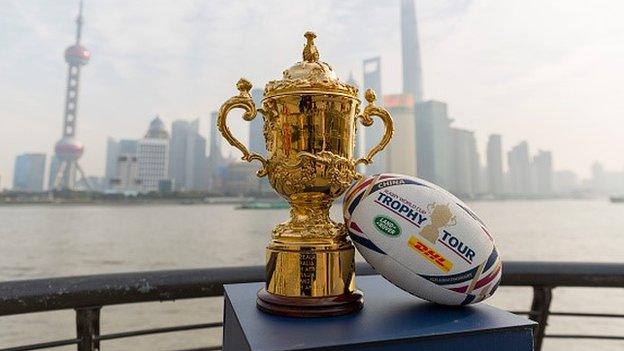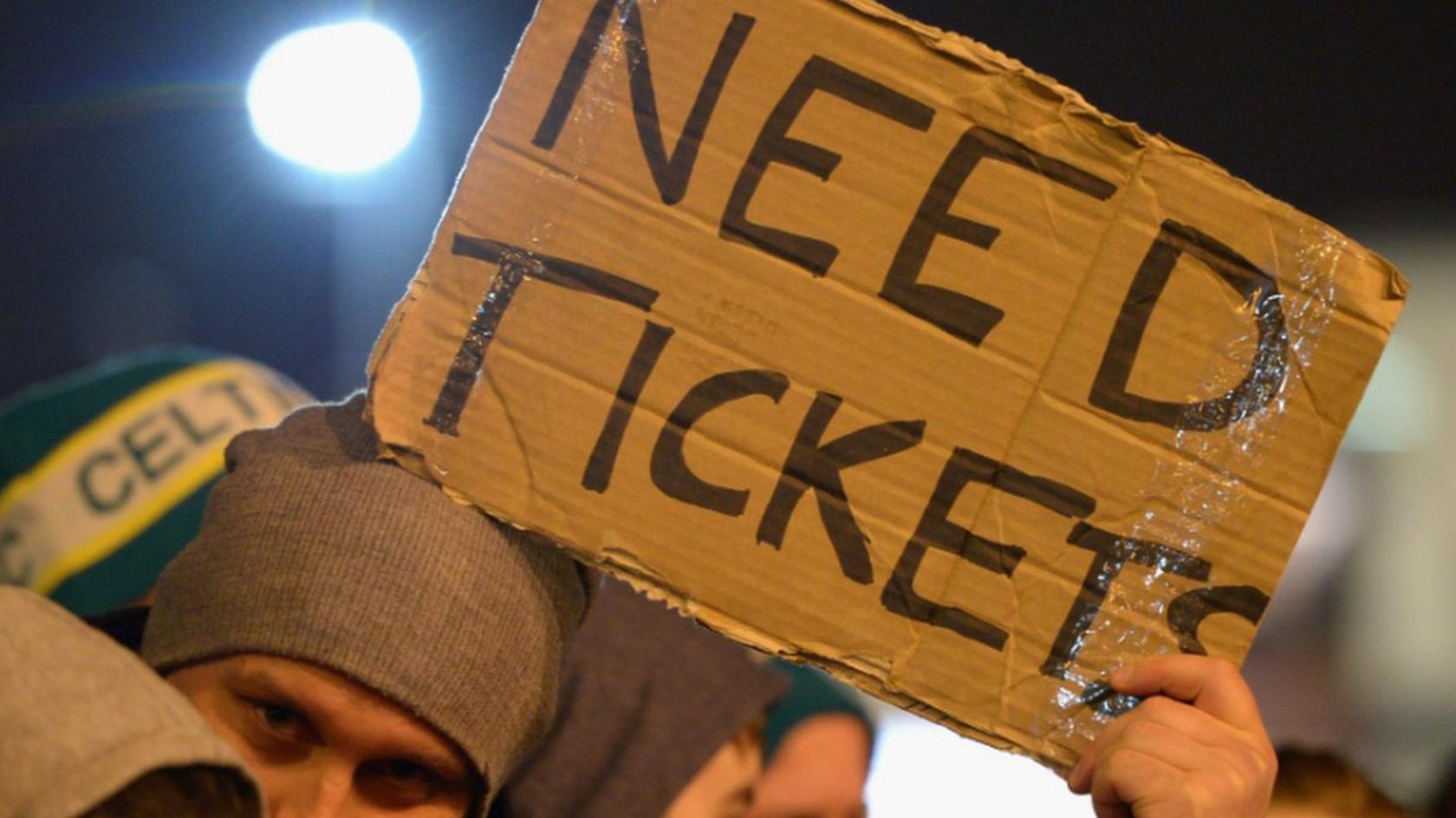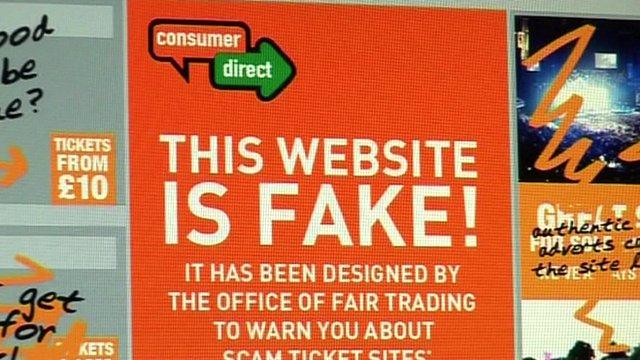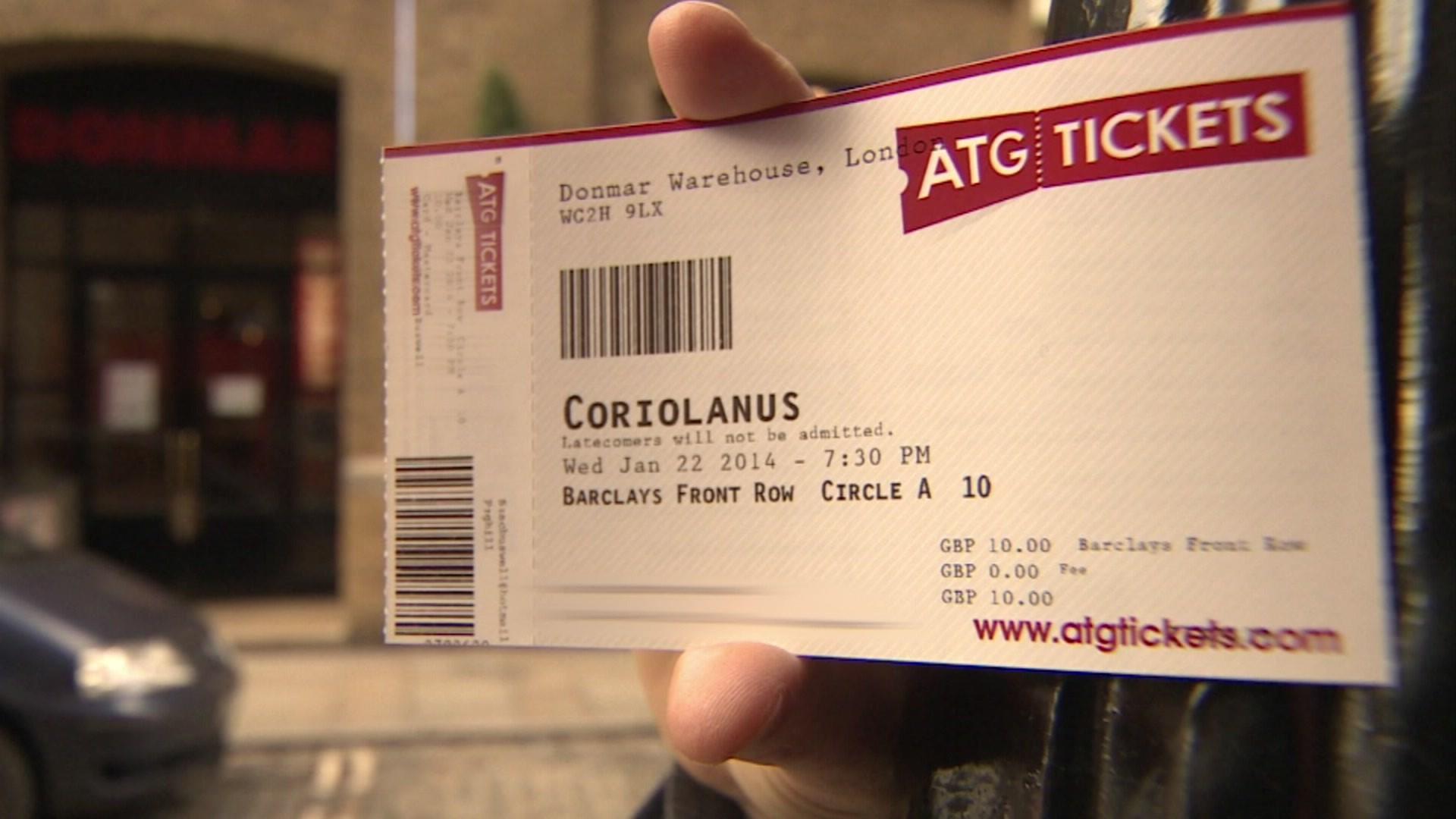Music and sports figures press for ticket resale reform
- Published

One Direction's managers are among the campaigners calling for action to combat ticket touts
Senior figures from the world of sport and entertainment have issued a call for new controls on websites selling event tickets.
They want resale websites to be required to publish the names of ticket sellers and the tickets' face value.
The call comes in a letter to the Independent on Sunday, external signed by heads of sporting and cultural bodies and entertainers' management companies.
MPs will debate the rules on Monday; ministers prefer a voluntary approach.
The Department of Culture, Media and Sport has previously said a change in the law would be unnecessary.
Ticketing specialist Reg Walker says the ''extremely sophisticated'' software used by touts enables them to harvest tickets in bulk
Secondary ticketing sites act as marketplaces that allow sellers to charge what they like for concerts, plays and sports events, and often earn a commission from selling on the tickets.
When tickets for a popular event go on sale, they may be snapped up in bulk either manually or using automated software in order to sell them on at a profit.
'Put fans first'
The letter warns that the way the secondary ticketing market currently operates can seriously undermine efforts to ensure fair prices for event-goers.
"It's high time the government stopped sticking up for secondary platforms, and decided to put fans first," the letter continues.

Some fans are concerned about access to fairly priced tickets for the 2015 Rugby World Cup
Individuals and organisations behind the letter include the England & Wales Cricket Board, Lawn Tennis Association and Rugby Football Union; the UK Theatre organisation; and managers of the bands Iron Maiden, Arctic Monkeys, Radiohead and One Direction.
They want ministers to give their backing to a set of measures requiring secondary ticketing platforms to publish:
the name of the seller and whether they are affiliated to a larger organisation
the face value of the ticket
the seat number of the ticket
whether the resale contravenes terms and conditions agreed to by the original buyer.
The proposals have been suggested as a change to the Consumer Rights Bill, which is currently going through Parliament.

How do ticket resale websites work?

Ticketing specialist Reg Walker explains: "This is organised and on an industrial scale. I think everyone at one time or another has tried to purchase tickets online, [and] simply not been able to get through because they are blocked out from the system by touts harvesting tickets in bulk using extremely sophisticated software.
"The software hits the primary ticket agent's system with a high-speed connection with multiple identities - different names, different credit cards, different addresses, different email address. It just simply pounds the system far faster than you or I can actually fill out our details.
"Unfortunately, what happens is as soon as tickets are harvested, they are flipped straight over onto a small number of so-called ticket marketplaces. The public are forced then to buy at inflated prices. We've seen £75 tickets go for upwards of £1,200. So some of the mark-ups on these tickets are enormous."

Rod Smallwood, Iron Maiden's manager, added: "At the end of the day we care about the fans, we care about the future of this business and we try not to overload them."
A spokesman for Viagogo, a ticket sales website, said: "We are in favour of making information clearer on our website and have made a number of commitments in our recent discussions with the government.
"However, publishing the original seller's identity is unnecessary because all tickets come with the Viagogo guarantee, while publishing specific seat numbers allows rights owners to cancel tickets which are being legitimately resold. Anyone can see that is not in the consumer's best interests."
'Market abuse'
Arguing on behalf of the proposed regulations in the House of Lords last November, the Conservative peer and former Olympic rower Lord Moynihan said the government had "an opportunity for action on behalf of consumers, the many people who daily find themselves to be the victims of market abuse".
But the government's culture spokesman, Viscount Younger of Leckie, responded: "I believe that a voluntary approach with improved guidance and with better point-of-sale electronic means to control ticketing is the way forward."
Peers defeated the government and voted in favour of adding the measures to the Consumer Rights Bill.
On Monday, MPs will need to decide whether to overturn that decision.
- Published13 May 2013

- Published11 January 2015

- Published24 January 2014
